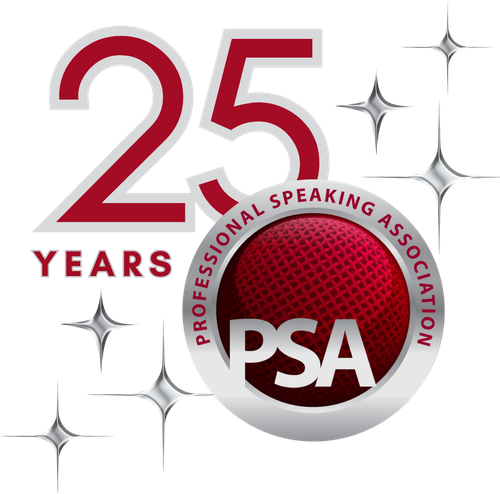Write a Speaker Contract that Gets Corporates to Say ‘Yes’
1st September 2021 | By PSA Team
By Sarah Fox
You can write your own speaker contract.
Not convinced? Let’s start with what I do know – your skills in crafting the perfect keynote or training event, your inherent skill with the spoken word means you are good with words. This post will help with the legal bits.
Do You Already Have a Speaker Contract?
If you get paid for your work, then you have a contract. It could be an exchange of emails, a proposal and reply, or a document marked ‘terms and conditions’. But if you want to safeguard your intellectual property, prevent scope creep and stay flexible in a pandemic, you will need a little more.
What the Law Needs
If there is no signed document, then – under English law – a contract is evidenced by five elements: offer (e.g. your proposal), acceptance (e.g. their reply), consideration (anything of value e.g. cold hard cash), an intention to create legal relations (presumed in the B2B context) and certain terms (i.e. ones which make sense to an outsider).
Quick note: contracts don’t need to be signed to be valid – a ‘yes’ to your proposal is often enough. So think about how you can make it easy for a client to agree to your contract.
Content is King
It’s a myth that corporates prefer complex contracts. The speed of doing business is faster with a simple speaker contract, and they can easily verify it meets their needs and understanding. A simple contract gets you the ‘yes’ faster.
When it comes to writing your content, think how it can make life easier for your client. Set out what you would like your client to provide or do such as pre-event briefings or AV checks, access to delegate information, permission for testimonials etc, and insurance for the event. Their role is not just to pay you!
Members of the PSA have access to the Speakers’ Hub where I set out these four elements of core content that your speaker contract needs:
- Scope: what you are doing (and when) as well as what you are not doing for example my contract says I won’t provide legal advice or comments on specific projects as part of my talk; separately you should also set out what your client is doing such as providing access to the venue, virtual or in person facilities, cups of tea, pianos or even a red ladder.
- Trust: contracts are part of your marketing so use them to build trust with your client. The sort of terms that build trust are ones where you say you will keep their information confidential, provides any sort of money-back guarantee, sets out the results they will achieve after your event, or allows them to cancel and rearrange. You may want to show you will take relevant tests before an event or are vaccinated.
- Aims: it is critical to repeat and set out what your client wants to achieve and how your services will help – this proves that you have been listening and establishes your credibility to meet their needs.
- Risks: you need a short section on what happens when things go wrong e.g. volcanoes or pandemics prevent travel, your audience test positive, your client doesn’t pay or someone copies your content. But beware using your contract as a means of displaying every petty grievance you have experienced – focus on the key issues.
Take Action Now
Ask any speaker or business owner and they will tell you it is just a matter of time before you will dearly wish you’d had something in writing to protect your interests or make it easier to resolve a misunderstanding.
PSA members can get a basic outline in the files section of the PSA Members Only Facebook page. Use your skills to adapt it to reflect your business, your expertise and your values. Then get someone to sense check it (you can ask me).
Your speaker contract is a tool to help you do business. If you wouldn’t use a rusty knife in your kitchen, why use a rusty speaker contract in your company?
Sarah Fox
Sarah Fox is a Fellow of the PSA, a construction contracts expert and author of a series of books on writing 500-word construction contracts. She believes every business owner should have contracts that they can read, understand and use.
Twitter @500wordlawyer
LinkedIn https://www.linkedin.com/in/sarahjvfox/
07767 342747
Join the community
Be part of a thriving community of business leaders and professional speakers
Reasons to join the PSA
- Supportive community
- Learn from others
- Join an one of our 15 regional centres
- Meet like minded people

Get updates on PSA events
Newsletter signup
"*" indicates required fields

